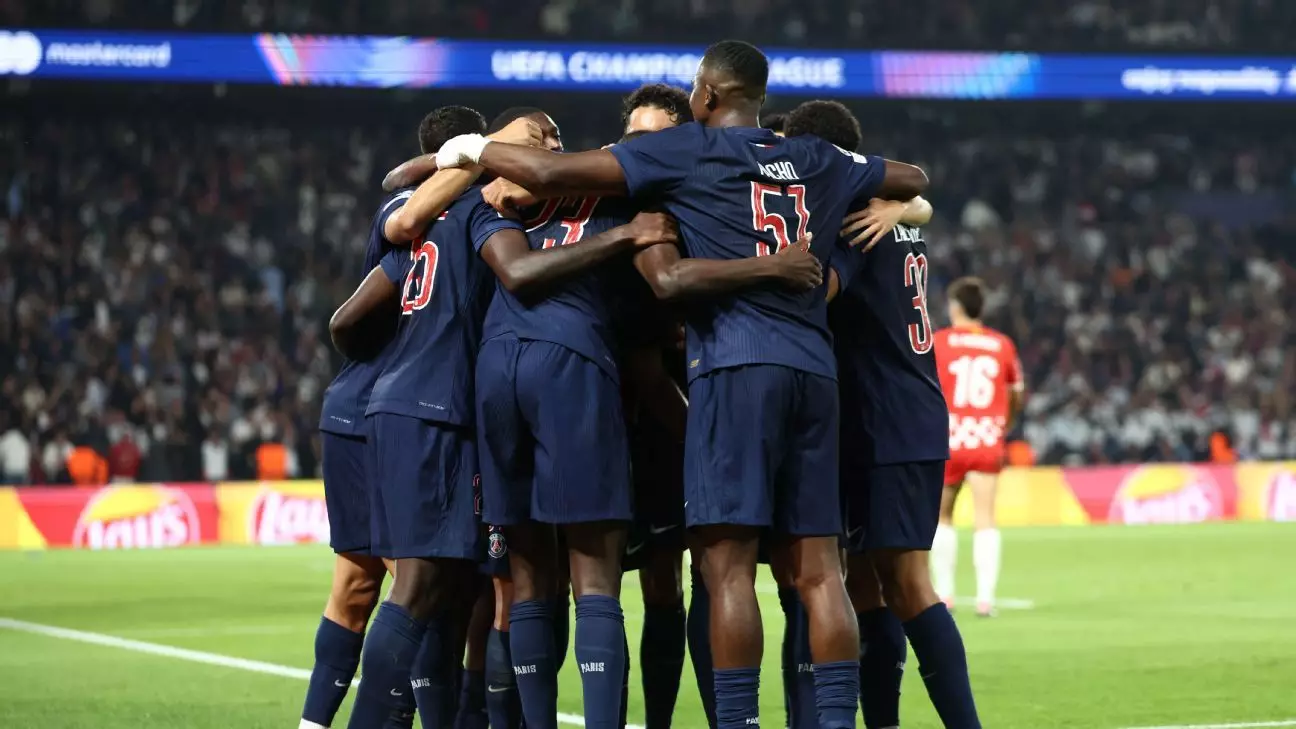Ligue 1 is grappling with the pressing issue of homophobia in football after Paris Saint-Germain (PSG) supporters engaged in anti-gay chants during a match against Strasbourg. This incident not only reflects isolated fan behaviors but also raises concerns about the broader culture within the sport. The chants targeted PSG’s rival, Marseille, particularly focusing on their midfielder Adrien Rabiot, a former PSG player. His transfer to Marseille from PSG has ignited tensions, perceived by fans as a betrayal, magnifying the already hostile atmosphere surrounding this historic rivalry.
In a statement, Ligue 1 condemned the discriminatory chants, emphasizing the league’s commitment to eradicating homophobic behavior within stadiums. Despite these statements, the reality on the ground reveals a disturbing contradiction between rhetoric and action. While representatives from Ligue 1 have articulated the importance of inclusiveness, incidents like these expose persistent challenges, suggesting that more robust and comprehensive measures are necessary to address the underlying fan culture.
Additionally, league officials indicated that their disciplinary committee will investigate the events at Parc des Princes. The ongoing concern over fan behavior in such charged rivalries highlights an acute need for effective interventions that go beyond mere condemnation. The stadium announcer’s pleas for the chants to cease were met with jeers, illustrating a troubling level of resistance among segments of the fan base regarding the embrace of social change.
A Pattern of Disruptive Behavior
This is not the first time PSG fans have faced disciplinary scrutiny. Last season, some PSG players received suspensions for their involvement in similar offensive chanting directed toward Marseille. The prior incidents have not deterred fans; rather, they have reflected a recurring theme in the rivalry, which has seen homophobic slurs repeatedly voiced. In response, the league took action by closing sections of the stadium in an attempt to curb further incidents. This cycle of behavior indicates an urgent necessity for long-term strategies aimed at altering attitudes among supporters.
The complexity of this rivalry cannot be overlooked. PSG has emerged as a dominant force in French football since Qatari investment began in 2011, claiming numerous league titles. Nonetheless, the historical legacy of Marseille, especially their Champions League victory, fuels competitive animosity. This animosity often manifests in ways that override the values the sport should promote, including respect and inclusivity.
To foster genuine change, stakeholders must prioritize education and awareness campaigns targeting fans. League leaders, clubs, and player associations should collaborate to create an environment where respect for diversity thrives, moving past mere declarations. Additionally, proactive measures from clubs, perhaps through engaging community initiatives or workshops, could help reshape the dialogue around such rivalries.
While the condemnation of homophobic chants from Ligue 1 reflects a growing awareness, the persistence of these issues illustrates the need for systemic change in football culture. By taking decisive action and embedding respect and inclusivity in the fabric of the game, stakeholders can work toward a future where football is truly a sport for all.

